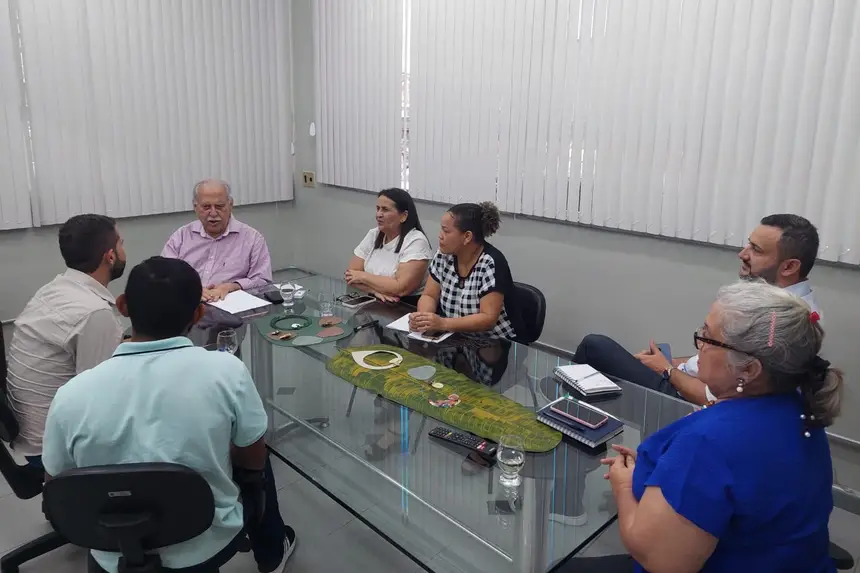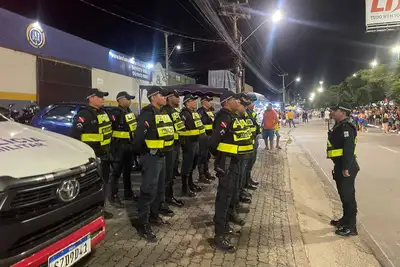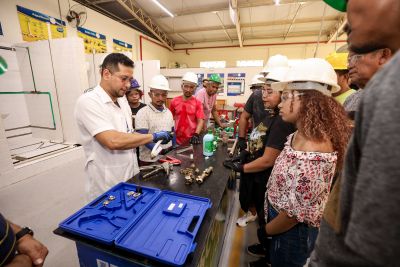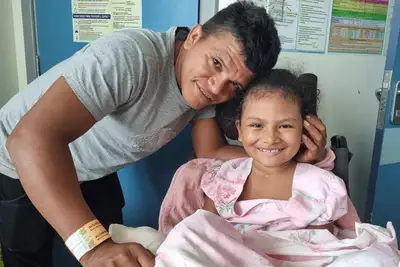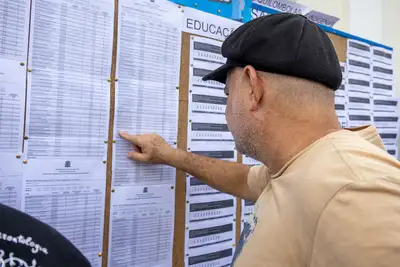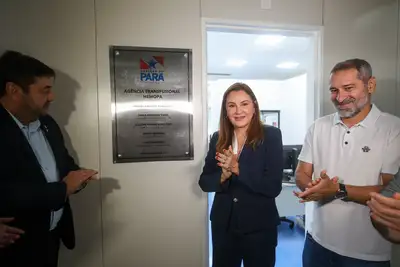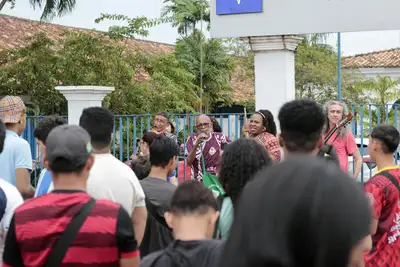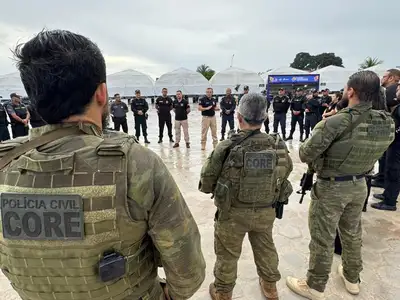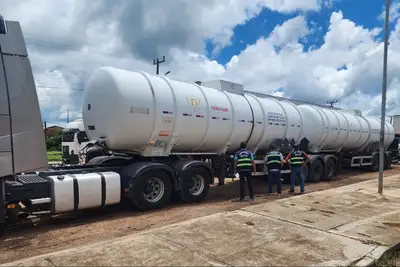Sedap strengthens Technical Assistance actions to expand land access for family farmers
The Secretariat met with representatives of an accredited company, which will primarily operate in the southern region of Pará
With the aim of ensuring the necessary support for rural workers in their search for financing through the National Land Credit Program (PNCF), managers from the State Secretariat for Agricultural Development and Fisheries (Sedap) met on Wednesday (18) with representatives of the newest accredited provider of Technical Assistance and Rural Extension Services (Ater) in Pará.
The meeting was attended by the head of Sedap, Giovanni Queiroz, members of the Secretariat's technical team, and the State Technical Unit (UTE), responsible for implementing the program in the State, linked to the state agency. The Renova Institute, a company contracted to provide Ater services, will begin its activities this month, primarily operating in the southern region of Pará, where there is a high demand from families interested in land credit.
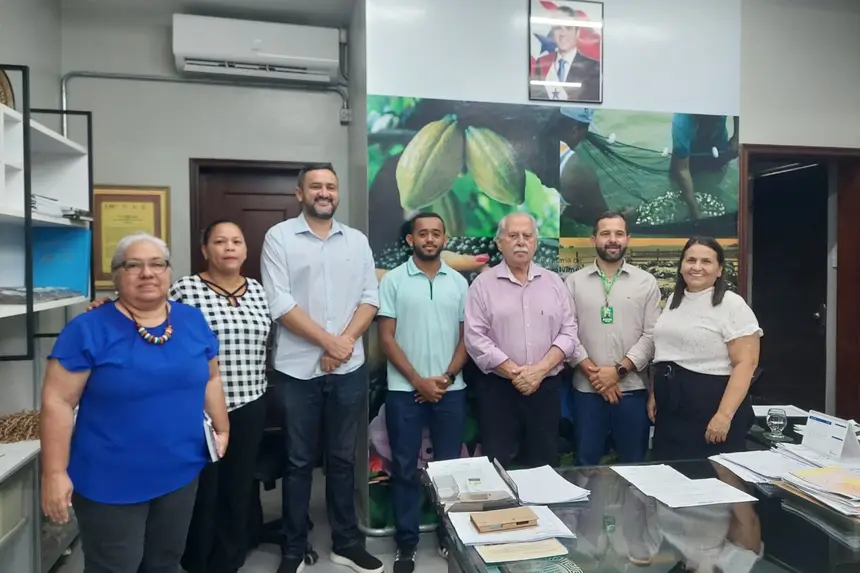
Agility - During the meeting, the representatives of the provider shared successful experiences in Ceará and Bahia, and presented the strategies that will be adopted in Pará with the aim of speeding up access to financing.
“We want to bring them in to strengthen and further expand the financing aimed at rural workers and family farmers, especially those who do not own land or only have a small space. The Program allows financing of up to R$ 293,527.64 per farmer, including two productive arrangements that ensure financial return. In addition, there is support with Ater for five years, which provides more security for the beneficiary,” emphasized Secretary Giovanni Queiroz.
The PNCF, also known as "Terra Brasil", is coordinated by the Ministry of Agrarian Development (MDA) and, in addition to land financing, provides access to other public policies, such as the National Program for Strengthening Family Agriculture (Pronaf A), Food Acquisition Program (PAA), and National School Feeding Program (PNAE).
The coordinator of the UTE, Martha Pina, explained that the Technical Assistance and Rural Extension Company (Emater-Pará), an accredited public provider, has already been operating in several municipalities in southeastern Pará. However, given the high demand in the southern region, the involvement of new providers is necessary to meet the volume of families awaiting support.
“During a training session in Brasília (DF), we met providers with extensive experience in other states, who have also recently been accredited to operate in Pará. We are providing the necessary support for them to understand our reality and start working as soon as possible,” informed Martha Pina.
The work of the Renova Institute will begin in the municipality of Floresta do Araguaia and is expected to extend to Tucumã, Ourilândia do Norte, São Félix do Xingu, and Água Azul do Norte. There are more than 500 demands from family farmers awaiting the start of the process.


